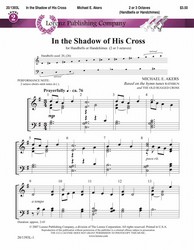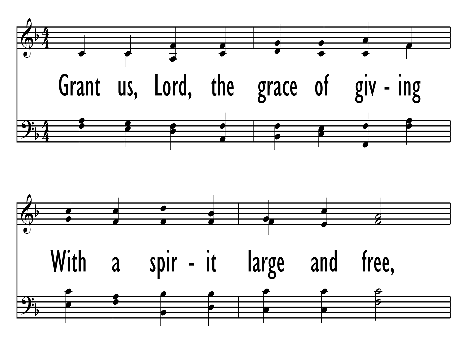- |
User Links
The Incarnation

Hark! what mean those holy voices
Author: John Cawood (1819)Published in 721 hymnals
Printable scores: PDF, MusicXMLAudio files: MIDI
Representative Text
1 Hark! what mean those holy voices
Sweetly sounding thro' the skies?
Lo, th'angelic host rejoices,
Heav'nly hallelujahs rise.
2 Listen to the wondrous story
Which they chant in hymns of joy,
Glory in the highest, glory!
Glory be to God Most High!
3 Peace on earth, good will from heaven,
Reaching far as man is found;
Souls redeemed and sins forgiven!
Loud our golden harps shall sound.
4 Christ is born, the great Anointed!
Heav'n and earth, His praises sing!
Oh, receive whom God appointed
For your Prophet, Priest and King.
5 Hasten, mortals, to adore Him,
Learn His name and taste His joy,
Till in heaven ye sing before Him,
"Glory be to God most high!"
6 Let us learn the wondrous story
Of our great Redeemer’s birth;
Spread the brightness of His glory,
Till it cover all the earth.
Amen.
Source: The Lutheran Hymnal #83
Author: John Cawood
John Cawood was born in 1775, at Matlock, Derbyshire, where his father carried on a small farm. He enjoyed very limited educational advantages. At the age of eighteen he occupied a menial position. But seeking every opportunity of self improvement, and aided by those who interested themselves in his behalf, he was enabled in 1797 to enter S. Edmund Hall, Oxford, and obtained his B.A. in 1801, and his M.A. in 1807. He was ordained in 1801, and most of his life in the ministry was spent as perpetual Curate of S. Ann's Chapel of Ease, Bewdley, Worcestershire. He died in 1852. He published several prose works, but no volume of hymns or poems. His son says, "My father composed about thirteen hymns, which have one by one got into print, th… Go to person page >Text Information
| First Line: | Hark! what mean those holy voices |
| Title: | The Incarnation |
| Author: | John Cawood (1819) |
| Meter: | 8.7.8.7 |
| Language: | English |
| Copyright: | Public Domain |
Hark! what mean those holy voices. J. Cawood. [Christmas.] This popular hymn appeared in 1819 in the 8th edition of Cotterill's Selection, No. 269, in 6 stanzas of 4 lines, with the refrain, "Hallelujah." In common with all the hymns in that Selection it was unsigned; but when republished by J. Montgomery in his Christian Psalmist, 1825, it was attributed to "Cawood." In some works, and collections, it is dated 1816; but in J. Cawood's son's correspondence with D. Sedgwick, it is undated [S. MSS.], and failing further information, it mutt remain as 1819. Of all Cawood's hymns this is the most popular. It is in extensive use in Great Britain and America. Original text in Snepp's Songs of Grace & Glory, 1872, No. 205, with "glory sing" for "praises sing" in stanza iv., line 2.
--John Julian, Dictionary of Hymnology (1907)
Notes
Hark! what mean those holy voices. J. Cawood. [Christmas.] This popular hymn appeared in 1819 in the 8th edition of Cotterill's Selection, No. 269, in 6 stanzas of 4 lines, with the refrain, "Hallelujah." In common with all the hymns in that Selection it was unsigned; but when republished by J. Montgomery in his Christian Psalmist, 1825, it was attributed to "Cawood." In some works, and collections, it is dated 1816; but in J. Cawood's son's correspondence with D. Sedgwick, it is undated [S. MSS.], and failing further information, it mutt remain as 1819. Of all Cawood's hymns this is the most popular. It is in extensive use in Great Britain and America. Original text in Snepp's Songs of Grace & Glory, 1872, No. 205, with "glory sing" for "praises sing" in stanza iv., line 2.
--John Julian, Dictionary of Hymnology (1907)
Timeline
Arrangements
Media
- MIDI file from The Book of Common Praise: being the hymn book of The Church of England in Canada (revised 1938) #804
- MIDI file from Carols Old and Carols New: for use at Christmas and other seasons of the Christian year #36
- MIDI file from The Cyber Hymnal #2169
- MIDI file from Gospel Praise Book.: a collection of choice gems of sacred song suitable for church service, gospel praise meetings, and family devotions. (Complete ed.) #247
- MIDI file from Hymns and Carols #5
- MIDI file from The Helper in Sacred Song: for Sunday-schools, churches, and devotional services #175
- MIDI file from Songs of Gladness for the Sabbath School #79a
- MIDI file from The Sunday School Hymnal: with offices of devotion #40a
- MIDI file from The Sunday School Hymnal: with offices of devotion #40b
- MIDI file from Worship and Song. (Rev. ed.) #77


 My Starred Hymns
My Starred Hymns






